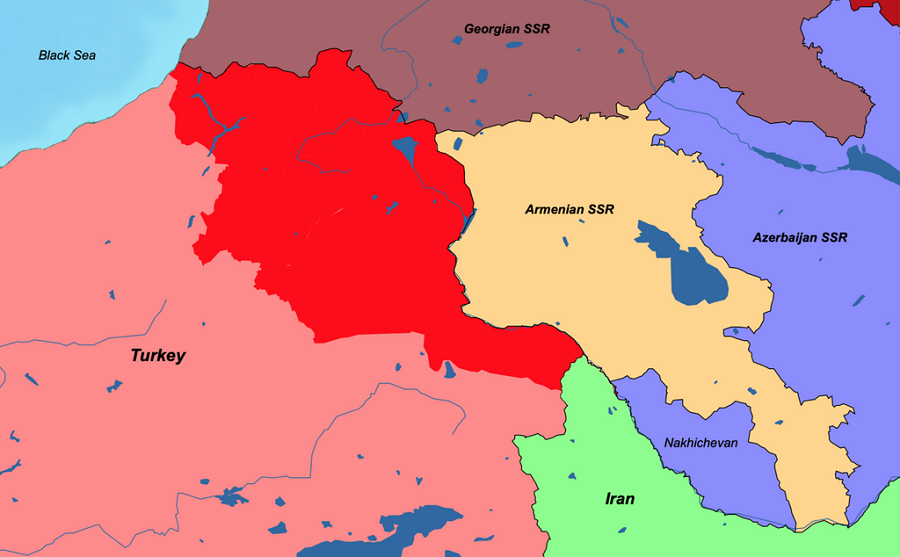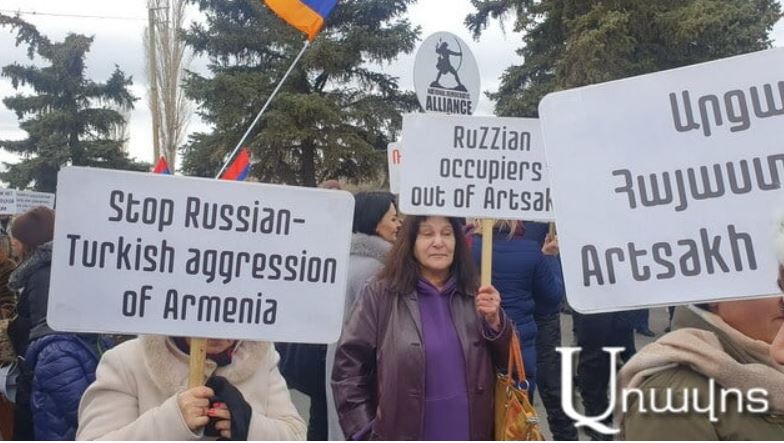Statement of the National Democratic Pole
on the 103rd tragic anniversary of the Treaty of Kars (October 13, 1921)
On October 13, 2024, the Armenian people will mourn the 103rd tragic anniversary of the signing of the Treaty of Kars. Signed more than a hundred years ago, this illegal document continues to have a destructive impact on the political fate of the Republic of Armenia. The Treaty of Kars can be unequivocally viewed as a clear example of imperialist policy, executed through Russia-Turkey cooperation, by which these two powers pursued their interests in the South Caucasus region, trampling on the rights and legitimate demands of the Republic of Armenia and the Armenian people.
Not being signed between sovereign states, it can only be considered as a bilateral deal, clearly reflecting the ongoing goals and strategy of Russian-Turkish imperialism in the region.
Cooperation goals: Division of spheres of influence
For centuries, Russia and Turkey have competed, and continue to compete, in the Caucasus to establish zones of influence. Through the Treaty of Kars, and before that the Treaty of Moscow, these two powers reaffirmed their influence in the South Caucasus, ensuring a certain status and control over the region.
Read also
The trampling of the interests of Armenia and the Armenian people
The Treaty of Kars demonstrated the desire of two imperialist states — Soviet Russia and Kemalist Turkey — to secure their interests without considering the will of the local peoples. Armenia, being a small and vulnerable state, became the victim of this deal, losing a significant portion of its territories. Turkey received the regions of Kars, Ardahan, and Surmalu, where the sacred Mount Ararat for the Armenian people was located. Nakhichevan was placed under Azerbaijan’s jurisdiction. The 1921 Kars agreement was and remains illegal because none of the signatories represented a sovereign state at the time of signing, meaning they were not legitimate representatives of a recognized state.
From the moment of its signing, the Treaty of Kars violated several fundamental principles of international law, known as jus cogens. Therefore, according to Article 53 of the Vienna Convention on the Law of Treaties of 1969, the Treaty of Kars was and remains an illegal deal from the perspective of international law, an unlawful document.
Changes in regional politics and the Nakhichevan issue
Due to strategic shifts in the power dynamics of the region and new geopolitical conditions, within the framework of a possible India-Iran-Armenia-Georgia corridor, the issue of Nakhichevan may be reopened, regardless of the will of the Republic of Armenia. Transport and economic projects may stimulate new discussions on this matter, and this will depend on the upcoming relations between Iran and the United States, as well as the outcome of the elections in Georgia scheduled for the end of October.
Conclusion:
The Treaty of Kars remains an illegal document, a testimony to the silence of Western democracies and their deal with their own conscience, a symbol of injustice, and the unlawful offspring of the treacherous collaboration of the imperialist forces of Russia and Turkey.
Council of the National Democratic Pole,
October 11, 2024, Yerevan























































